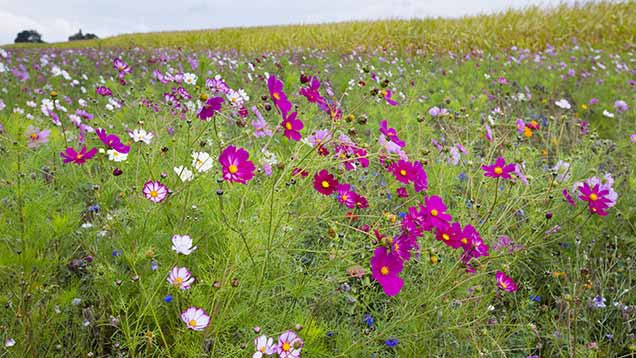Labour makes 15% CAP modulation rate election pledge
 (c) REX/Tim Graham / Robert Harding
(c) REX/Tim Graham / Robert Harding A Labour government would move to a full 15% modulation rate of CAP money in 2017, if the party were elected.
Shadow Defra secretary Maria Eagle set out the policy pledge in a speech at the Royal Society for the Protection of Birds (RSPB) head office in Sandy, Bedfordshire, on Tuesday (3 February).
She said: “I can announce that Labour will move to a full 15% of CAP money going to Pillar 2 from 2017. No review. No rehearsing of the arguments.”
See also: Labour promises ‘long-term’ farming plan, if elected
Ms Eagle, MP for Garston and Halewood, said Labour would promise a “clear commitment” to make sure the CAP did more to “protect nature, support a vibrant rural economy and get best value for money”.
There could be no “arbitrary trade-off” between food production and sustainability, or between food affordability and the natural environment, she explained.
“Those who argue that you can either have affordable and plentiful food, or you can protect the soil, water and biodiversity, are simply wrong to set out such a binary choice,” Ms Eagle said.
“Our challenge has to be to achieve multiple objectives. Yes, people want safe, nutritious and affordable food. But people also value a healthy, diverse ecosystem which assists flood alleviation and is rich in wildlife.
“They want an attractive countryside and local food networks. They want farming that boosts the rural economy, with jobs and wages that attract entrants into agriculture, horticulture and food production.”
To achieve these goals, Ms Eagle said the country needed to continue down the path of redirecting CAP payments towards “additionality” – to the public goods that flow from agriculture.
“Our challenge has to be to achieve multiple objectives. Yes, people want safe, nutritious and affordable food. But people also value a healthy, diverse ecosystem which assists flood alleviation and is rich in wildlife.”
Maria Eagle
And Ms Eagle said we needed to do much more to ensure that payments under the CAP “contribute to environment protection”.
A Labour government would put an end to the “perverse approach” of spending public money twice, she added. “Once to pay for damage to the ecosystems and then to pay for its repair.”
Taking the example of upland peatland sites, Ms Eagle said: “They store carbon, reduce flood risk, and help provide clean water. But despite large amounts of public money going into the conservation of the English uplands, only 10% are in good condition.”
Under the current Conservative/Lib Dem coalition government, Defra has opted to transfer 12% of public funds from direct payments to rural development schemes under the new CAP.
If the coalition government wins the general election in May, it will review its decision in 2016 with a view to moving to a maximum modulation rate of 15% in 2018-19.
The NFU seized on Ms Eagle’s speech and said it would “infuriate and perplex” English farmers.
A union spokesman said: “The current government agreed that it would review demand for agri-environment schemes and assess the competitiveness of English agriculture before moving to a 15% transfer rate.
“The NFU agreed that this was the right approach to take and it would clearly be disappointing if this was not followed through.
“If indeed a review of the schemes on offer proves that there is clear evidence of demand from farmers for additional RDPE funds by 2017, the NFU would not oppose an increase in the modulation rate.”
But the National Trust, which owns 200,000ha of farmland in England and Wales, welcomed Ms Eagle’s comments, saying it was an “important and much needed intervention”.
Its external affairs director Richard Hebditch welcomed Labour’s pledge to increase the share of CAP funding that goes to deliver positive outcomes for the environment.

